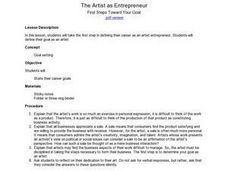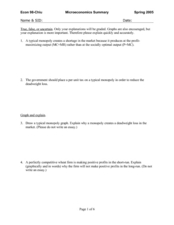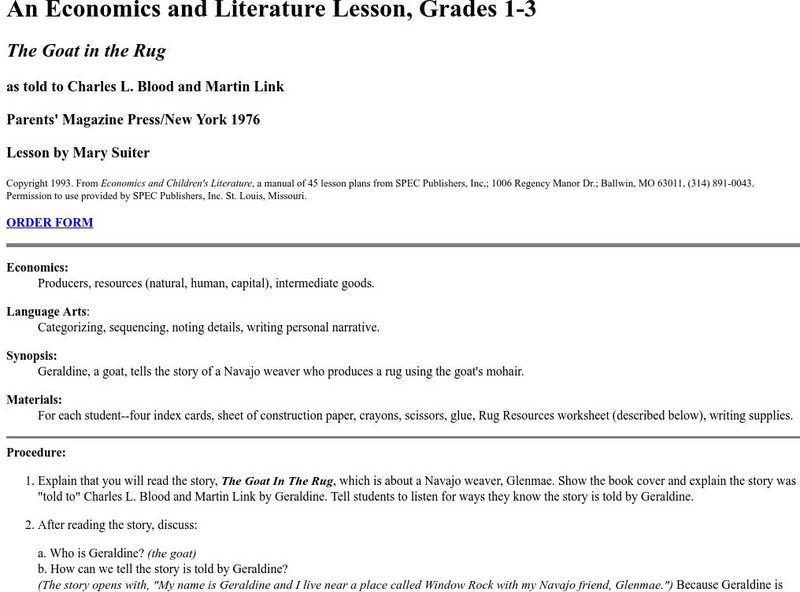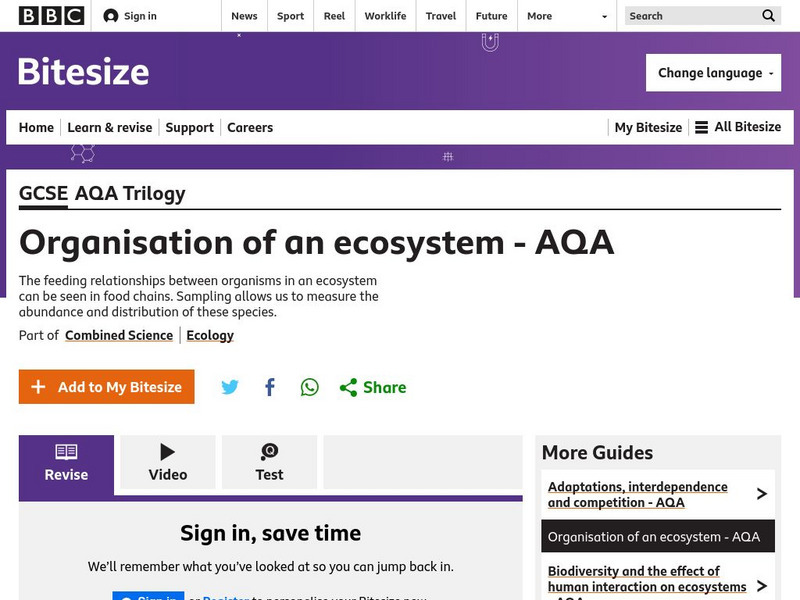Curated OER
The Artist as Entrepreneur
Young scholars compare the entrepreneurial process in business and in the art world. They create a scenario of a business opportunity and solution based on a product from a catalog then they research how several successful artists have...
Curated OER
Variables That Can Affect Making Schedule
Students study the variables that affect transportation of shipments and the factors that affect deterioration of a perishable product. In this transportation lesson plan students discuss the pros and cons of team driving.
Curated OER
Microeconomics Summary
Twelfth graders study microeconomics. In this Economics lesson, 12th graders draw graphs on government taxes. Students decide if these graphs are true or false.
Curated OER
Money and Banking
Twelfth graders explore real world investing and the effects of day to day decisions on their financial futures.
Curated OER
Worm Composting: Vermiculture
Students compost in a limited space and describe the decomposing process. Students convert unwanted, organic matter, particularly food scraps and paper into fertile soil.
Curated OER
Gross Domestic Product in the Real World
Students gain knowledge of Gross Domestic Products and how they are used as an economic indicator. They bring articles that mention GDP and decide how it is used in articles. Students present orally their findings to the class.
Curated OER
EcoKids Web Site: Food Chain Game
Pupils use the EcoKids web site to explore food chains and the associated terminology. They answer the questions about food chains and their importance. Students use the Kidspiration program to add information to an Animal Fact Web.
Curated OER
Puberty
Eighth graders describe the changes their body undergoes during puberty. In this health science lesson, 8th graders explain how the hypothalamus and pituitary gland play a major role in the process. They identify the different parts of...
Louisiana Department of Education
Louisiana Doe: Louisiana Believes: Social Studies: Grade 2: Producers and Consumers
In this instructional task, 2nd graders develop and express claims through discussions and writing in which they explain how a person can be both a producer and consumer.
SMART Technologies
Smart: Economic Review Lesson
This activity reviews goods, services, producers, and consumers. The lesson consist of sorting, fill in the blank, writing, and racing car review quiz.
University of Nebraska Omaha
An Economics and Literature Lesson: The Goat in the Rug
This is a lesson plan geared toward first through third grades, cross-curricular, dealing with economics and literature. "Learn about economics: producers, resources (natural, human, capital), intermediate goods; and Language Arts:...
BBC
Bbc: Gcse Bitesize: Adaptations, Interdependence and Competition
This lesson focuses on how plants and animals live together in a community or ecosystem by adapting, interdependence, and competition.
BBC
Bbc: Gcse Bitesize: Organization of an Ecosystem Aqa
This lesson focuses on the organization of an ecosystem. The feeding relationships between organisms in an ecosystem can be seen in food chains. Sampling allows us to measure the abundance and distribution of these species. It provides...
Project Britain
Primary Homework Help: Food Chains Quiz
Brush up on food chain vocabulary before taking this interactive quiz. Check the box for the correct answers throughout the assessment.
Other
S Cool: Engery Flow and Nutrient Cycle
This website describes trophic levels, transfer of energy between trophic levels, pyramids of ecology, and nutrient cycles within the environment.














